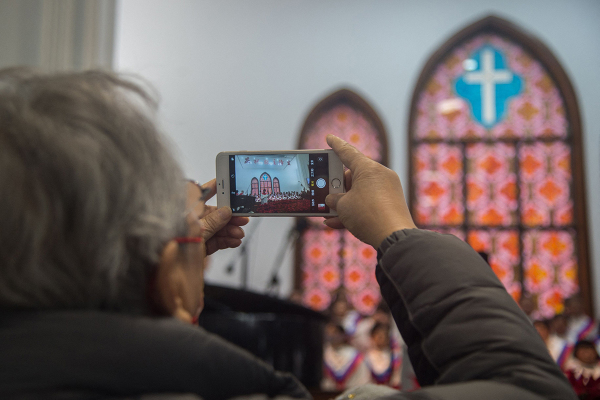3 Ways to Be On Guard When You're Online

Social networking has a reputation. A lot of people make assumptions about it. Such as, "social networking is for narcissists," or " social networking is shallow and prevents us from going deep." I'm a guy who loves social networking and even wrote a book about it. But I agree with people who say these things. Let me explain.
While I do believe that her modern technology and culture have afforded us tools we've never had before for sharing the gospel, forging relationships, and making a difference in the world, I also believe that modern technology has brought a whole new set of risks with it. Of course, I would say that about the technology of any era.
As far as I am concerned, the Internet and the social networking platforms that exist on it are tools. Therefore, it's all in how we use the tools. Social networking can be used for good or for bad. And it can bring out the worst of us and the best of us. But so that we don't throw the baby out with the bathwater, let me emphatically say that social networking is absolutely a tool that modern Christians need to be using to share the good news of Jesus. We simply need to be on guard.
1. We need to guard our hearts.
One of the most dangerous tendencies that comes along with an active social networking life is the tendency to allow our egos to become inflated by what people say about us online. Social networking, by its very nature, has stimulated a culture of flattery and empty compliments. It is certainly not bad to compliment people. But it can be dangerous if we choose to receive those compliments with a wrong spirit. So we have to learn to self-deflate.
On the flip side is the tendency to take criticism to heart. And online, it is very easy for people to heartlessly fire shots from behind their computers without considering the feelings of others. Whether a simple word of judgmental criticism or outright bullying, the online world can be a cruel place.
To face it well, we need to have our hearts guarded by a strong sense of who we are in Christ. Just as in the real world, it is this well-defined sense of identity that protects us from the onslaught of both praise and criticism.
2. We need to guard our eyes.
When the Bible talks about the temptation that Eve faced from the serpent in the Garden of Eden, it says that she "saw that the fruit was good." The New Testament fleshes out this principle by saying that temptation often appeals to the "lust of our eyes." It's often what we see that gets us in trouble, if we allow it to take up residence in our minds.
We live in a lewd world that doesn't necessarily value modesty, so in the world of online social networking, from advertisements to entire segments of the web, we are tempted by a barrage of visually appealing temptations. To say that Christians should avoid pornography is obvious, but there are far more subtle ways that we fall into the trap of having unguarded eyes. Advertisements will pop up in Facebook's right sidebar that we need to let go of quickly, and sometimes report. Instagram, Pinterest, and other photography-based social networks are certainly gamed by the adult industry. And Youtube and other video-based social networking sites are a virtual minefield of visual temptation.
Guarding our eyes gets practical. It means looking away, clicking away, and distracting ourselves with something more pure and positive.
3. We need to guard other people.
Starting with those closes to us, we need to guard the people whom we love and with whom we interact. If you are the head of your household, it's your responsibility to be aware of what could be showing on a computer screen near you. With dozens of tools for filtering available, including OpenDNS (which is free and protects at the router-level), it's imperative that we not be naive and that we assume that pornography and other dangerous materials will be seen by our household members if we don't take precautions to protect against it.
Protecting others online also means protecting their hearts and their relational well-being. Flirting with an old flame can destroy two families. Harshly criticizing someone we only know by their Twitter profile can cause deep wounds on the other side of the keyboard. We have the responsibility, when we interact with others, to watch out for their emotional well-being as much as our own.
It's an open world. Anyone can say anything to everyone, which presents a set of dangers that may have always existed, but which have been amplified by the affordability and accessibility of online communication.
So when you're online, be on guard.
__________
Brandon Cox became a pastor at age nineteen and has served in that role in small churches, as well at Saddleback Church, one of America's largest and most influential churches. He's now planting Grace Hills Church in northwest Arkansas. Brandon also serves as editor, mentor, and community facilitator for Pastors.com and Rick Warren's Pastor's Toolbox, one of the world's largest online communities of church leaders. He's an avid, top 100 blogger (according to Kent Shaffer's semiannual list) and lives in Bentonville, Arkansas with his wife, Angie, and their three awesome kids. His book "Rewired" releases in February.





















